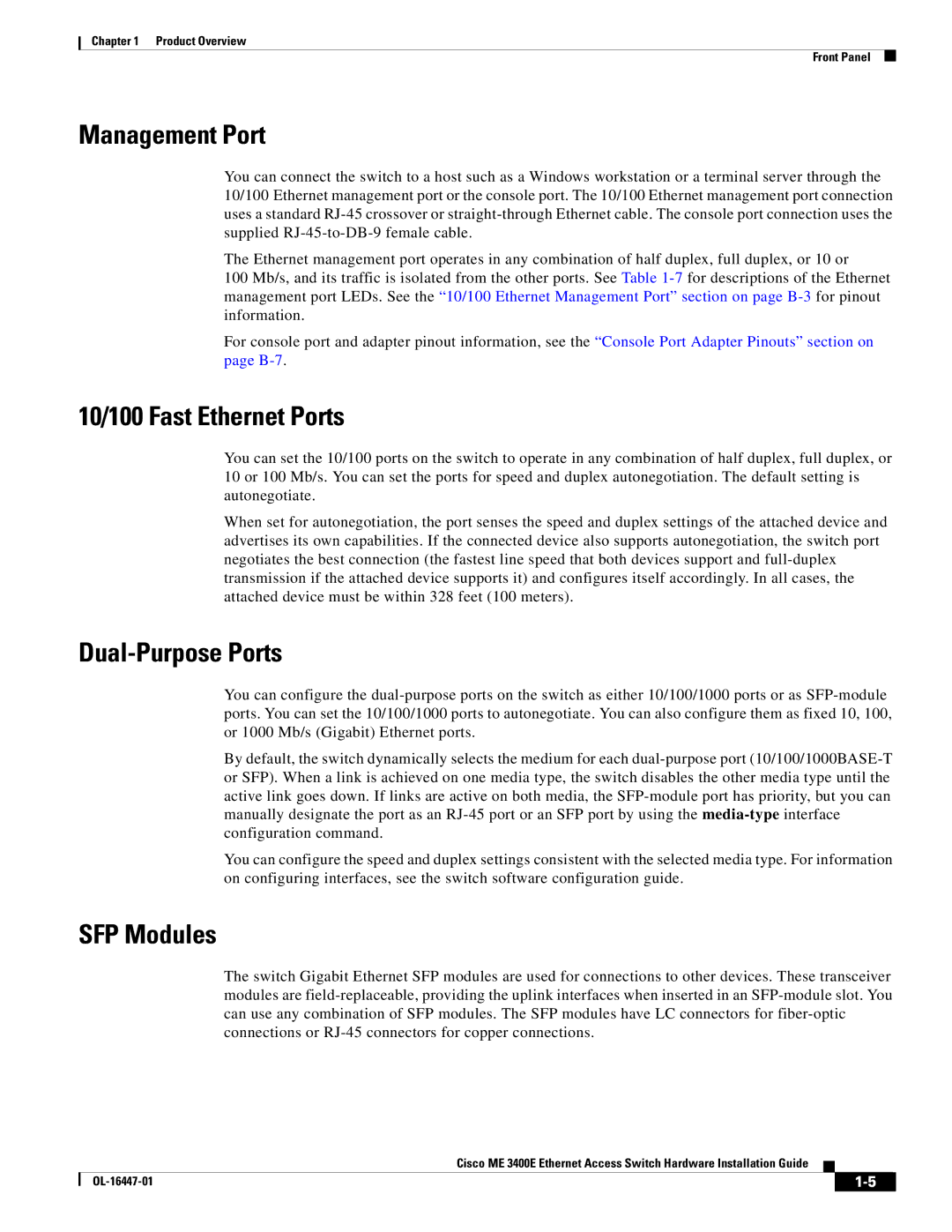
Chapter 1 Product Overview
Front Panel
Management Port
You can connect the switch to a host such as a Windows workstation or a terminal server through the 10/100 Ethernet management port or the console port. The 10/100 Ethernet management port connection uses a standard
The Ethernet management port operates in any combination of half duplex, full duplex, or 10 or
100 Mb/s, and its traffic is isolated from the other ports. See Table
For console port and adapter pinout information, see the “Console Port Adapter Pinouts” section on page
10/100 Fast Ethernet Ports
You can set the 10/100 ports on the switch to operate in any combination of half duplex, full duplex, or 10 or 100 Mb/s. You can set the ports for speed and duplex autonegotiation. The default setting is autonegotiate.
When set for autonegotiation, the port senses the speed and duplex settings of the attached device and advertises its own capabilities. If the connected device also supports autonegotiation, the switch port negotiates the best connection (the fastest line speed that both devices support and
Dual-Purpose Ports
You can configure the
By default, the switch dynamically selects the medium for each
You can configure the speed and duplex settings consistent with the selected media type. For information on configuring interfaces, see the switch software configuration guide.
SFP Modules
The switch Gigabit Ethernet SFP modules are used for connections to other devices. These transceiver modules are
Cisco ME 3400E Ethernet Access Switch Hardware Installation Guide
|
| ||
|
|
